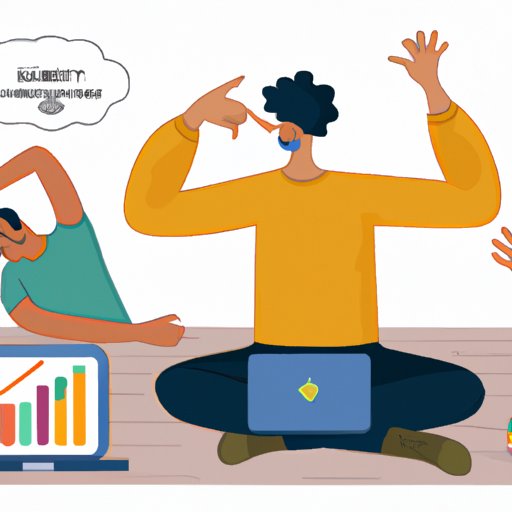
Introduction
In recent years, mental health has become an increasingly important topic of discussion in society. More and more people are coming forward to share their personal experiences with mental illness, bringing this issue into the public eye. This article aims to explore what mental illness means, its impact on individuals and society, treatment and preventive measures, cultural perspectives, stigma and discrimination, and ways to overcome these barriers.
Personal stories
Personal stories of individuals who have experienced mental illness can have a profound impact on readers. These stories help to break down the stigma surrounding mental illness and encourage people to seek help if necessary. For example, famous celebrities such as Lady Gaga, Demi Lovato and Catherine Zeta-Jones have publicly shared their struggles with mental health issues and have become advocates for mental health awareness.
One inspirational story is that of Mari Andrew, a writer and illustrator who shared her journey through depression and chronic illness in her book “Am I There Yet?”. Her story, along with many others, shows that mental illness can affect anyone, regardless of their background, and that it is possible to overcome these challenges with the right support and treatment.
Statistics
The scale and prevalence of mental illness is significant. In the United States, approximately one in five adults experience mental illness in a given year, and more than half of those who need treatment do not receive it due to various reasons, such as stigma, poor access, and affordability. Mental illness also has a profound impact on individuals, families, and society. It has been associated with job loss, poor physical health, substance abuse, and even suicide.
Therefore, it is essential to promote understanding and awareness of mental health issues, and to advocate for increased resources and care.
Professional insights
To better understand mental illness, we reached out to mental health experts such as psychologists, psychiatrists, and counsellors. Mental illness can be defined as a range of conditions that affect a person’s mood, perception, thinking, and behavior. Symptoms can vary depending on the type and severity of the illness, but can include feelings of sadness, anxiety, irritability, and changes in appetite, sleep patterns, and energy level.
Mental illness can be caused by various factors such as genetics, environment, life events, and brain chemistry. Treatment options for mental illness include medication, psychotherapy, and lifestyle changes. For example, Cognitive Behavioral Therapy (CBT) is a widely used form of therapy that helps patients identify and change negative patterns of behavior and thinking, improve coping skills, enhance relationships, and increase overall well-being.
Culture and mental illness
Cultural factors can significantly impact the way mental illness is understood and treated. Different cultural norms, values, and beliefs can influence how individuals interpret their symptoms, the types of treatment they seek, and the level of support they receive from their communities. For example, mental health stigma and lack of access to services are prevalent in many cultures, preventing individuals from receiving the care they need.
Cultural sensitivity and awareness are crucial to promoting mental health equity, providing appropriate care to individuals, and reducing barriers to care.
Stigma and Discrimination
Stigma is one of the most significant challenges facing individuals with mental illness. Stigma and discrimination can lead to social exclusion, low self-esteem, and limited access to mental health services. Fortunately, there are ways to reduce stigma, such as educating the public about mental illness, promoting understanding and empathy, and creating supportive environments for individuals with mental illness. Disclosure of mental illness is a significant way to fight against the stigma and enhance the social image of mental illness.
Conclusion
Mental illness is a prevalent and growing health concern that affects people of all backgrounds. By understanding this issue, sharing personal stories, promoting mental health awareness, and advocating for increased resources, we can improve mental health outcomes for ourselves and others. It is essential to seek help if necessary, connect with supportive people, and cultivate positive self-care practices. With the right mindset and support, individuals can overcome the challenges posed by mental illness and lead fulfilling lives.





